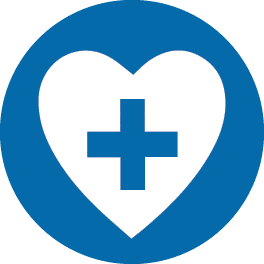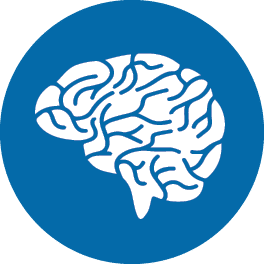Why Choose CPAP?
What is CPAP Therapy?
CPAP is the safest, least expensive, and most effective treatment for obstructive sleep apnea (OSA).
It’s an acronym for continuous positive airway pressure. CPAP provides a constant stream of air with enough pressure to hold the passageway in the back of your throat open and keep it from partially collapsing which would otherwise restrict airflow. It ensures your airway remains open while you sleep.
How CPAP Helps
The answer to questions like how does CPAP help sleep apnea? and how does CPAP improve health? are the same. CPAP usage each night, through the night, improves your health because it effectively treats sleep apnea. Obstructive sleep apnea is nothing more than a blocked airway. CPAP unblocks the airway.
CPAP Helps Prevent Heart Attacks and Prevent Cardiovascular Disease
Obstructive sleep apnea is extremely common if you have cardiovascular disease, yet few cardiovascular patients undergo an evaluation to determine if they have OSA. This may be in part due to poor adherence to the main treatment of obstructive sleep apnea which is CPAP.
Many cardiovascular patients aren’t showing improvements because they aren’t using their CPAP machines often enough to reverse the effects of obstructive sleep apnea on heart health. Two exhaustive reviews showed that improvements in cardiovascular outcomes require four or more hours of usage each night. The largest randomized trial indicated that average CPAP usage was 3.3 hours per night, which is not enough to have the full benefit of cardiovascular disease prevention.
CPAP is an extremely effective solution for preventing cardiovascular events and should be used. It does this by treating the underlying cause of cardiovascular disease which is obstructive sleep apnea. To reap the benefits, however, you must wear it throughout the night.
One issue of adherence is a result of the continued misconception that CPAP equipment today is the same as your father’s or grandfather’s CPAP equipment. It’s not. There have been huge advances in the technology which means you have many quiet, compact, and comfortable options to choose from.
Continued focus on our patients’ successful treatment of sleep apnea begins with our comprehensive program that encourages and promotes long-term usage of CPAP. Without long-term CPAP usage, the value of a sleep consultation, polysomnogram, and CPAP equipment is limited.
We provide comprehensive patient education and will troubleshoot CPAP problems with you in order to help you maintain a level of adherence that delivers results.

MANY HEART ATTACKS MAY HAVE BEEN PREVENTED WITH CPAP
In 2005 Marin et al found that severe sleep apnea markedly increased the number of non-fatal cardiovascular events, and that treatment with CPAP prevented this increase in events. In 2016 McEvoy et al found no cardioprotective effects with CPAP but patients in this study only wore their CPAP 3 hours per night. A secondary analysis of the 2016 study found that patients who wore their CPAP for 4 or more hours did receive cardioprotection. The patients in the Marin et al study also averaged over 4 hours usage per night, pointing out that patients must wear their CPAP over 4 hours per night to prevent heart attacks and other cardiovascular events.
Lancet 2005; 365: 1046-53
N Engl J Med 2016;375:919-31.
CPAP Helps Reverse Brain Damage Caused by Sleep Apnea
Treatment of obstructive sleep apnea has been shown to be an effective preventative method as well as a treatment method for various cognitive issues, and diseases of the brain, as well as brain damage.

BRAIN DAMAGE CAUSED BY SLEEP APNEA IS REVERSIBLE WITH CPAP
A recent Neuroimaging study found that severe sleep apnea caused reduction in brain white-mater fiber integrity, leading to cognitive problems (concentration and memory issues), mood issues (depression, anxiety, irritability), and decreased alertness. Treatment with continuous positive airway pressure (CPAP) for 12 months almost completely resolved the white-matter damage and produced marked improvement in cognitive function, mood, alertness, and quality of life. (Sleep. 2014 Sep 1; 37(9): 1465–1475.)

CPAP is an effective therapy that relieves obstructive sleep apnea symptoms including:
- Frequent waking
- Snoring
- Choking in your sleep

The long-term benefits of restorative CPAP-aided sleep are:
- Improved memory
- Improved energy levels
- Increased alertness during the day
- Improved mood
- Reduction of sleep related accidents

Perhaps more importantly are the improvements of all obstructive sleep apnea related diseases.
Here are a few:
- Hypertension
- Diabetes / blood sugar control
- Cardiovascular disease and arythmias
- Stroke
- Pulmonary arterial hypertension
- Obesity / weight related complications
- Depression / mood disorders
- Sexual dysfunction
- Gastroesophageal reflux disease
- COPD
- Asthma
- ADD/ADHD
- PTSD
CPAP is considered a lifestyle change, so you can expect it to work best when used consistently on a nightly basis. You should use CPAP during all instances where you’re sleeping; including naps. The more you use CPAP, the better you’ll feel.
CPAP therapy is generally covered by your medical insurance company and involves the use of a provider-prescribed machine, flexible tubing, a mask or nasal pillow.
Your Advanced Practice Provider Sleep Medicine Specialist at Sleep Centers of Middle Tennessee will help ensure you receive a properly-fitted mask. We’ll also medically determine the correct amount of air pressure needed to treat your OSA.
Will CPAP stop snoring?
Yes. CPAP resolves snoring and obstructive sleep apnea by applying a flow of air with enough pressure to keep the airway open enough to mimic how open it is when you’re awake. Snoring is the sound of an obstructed airway and someone struggling to breathe. It’s a serious condition and if you’re snoring now, there’s over an 80% chance you have obstructive sleep apnea now and a 20% high likelihood you will develop it in the near future.
What does it mean if I'm still snoring when I'm using my CPAP?
If you’re snoring while using CPAP, it’s not set right. You should contact us for an evaluation to ensure your CPAP’s pressure is calibrated correctly for you.
Can I get CPAP without a mask?
Yes. The majority of our patients today us soft nasal cushions that cover the nostrils with a single strap. It’s also common to have a nasal mask that covers the nose only. Nose and mouth masks are available but are used rarely and typically only when a patient has a nasal obstruction or needs very high pressure to treat their sleep apnea.
Can going on a CPAP machine lower blood pressure?
Yes. CPAP clearly improves blood pressure control, especially with patients who have difficult to treat blood pressure. In fact, many of our patients with high blood pressure have often been able to get off of their blood pressure medication after undergoing treatment for their obstructive sleep apnea with CPAP.
Anyone with hypertension should be evaluated to determine if you need to be treated for obstructive sleep apnea or to eliminate the possibility that you have it. OSA will cause or worsen high blood pressure, and treatment, especially for hypertension is difficult to treat without resolving this underlying factor. Medication may be helping to keep your blood pressure within recommended limits, but it does not mean you don’t have high blood pressure caused by OSA which needs to be addressed.
Can CPAP help control my blood sugar and positively impact my diabetes or pre-diabetes?
Yes. Untreated obstructive sleep apnea causes insulin resistence, which is the main factor behind pre-diabetes or type 2 diabetes. Treatment of OSA with CPAP for even just a few weeks has been shown to improve insulin resistance and lower hemoglobin 1AC and improve blood sugar control in patients with pre-diabetes and diabetes.*
*West, Sophie D et al. “Effect of CPAP on insulin resistance and HbA1c in men with obstructive sleep apnoea and type 2 diabetes.” Thorax vol. 62,11 (2007): 969-74. doi:10.1136/thx.2006.074351
*Babu AR1 et al. “Type 2 diabetes, glycemic control, and continuous positive airway pressure in obstructive sleep apnea.”
Department of Medicine, Rush University Medical Center, Chicago, IL 60612, USA. Arch Intern Med. 2005 Feb 28;165(4):447-52.
How do I use CPAP if I don't breathe well through my nose?
Fortunately, unlike in the past, as recently as the 1990s when patients needed nasal surgery to open up their airway, surgery is no longer the only option for those struggling to breathe well through their nose. Today, pressure holds the airway through your nose open with nasal pillows. By placing the air pressure in the nostrils, the airway is forced open.
There are some instances where nasal pillows are not recommended, such as if pressures over 14 are required. A sleep specialist can help you determine if nasal pillows are an option for you.
Can nasal surgery resolve my snoring?
It is extremely unlikely that nasal surgery will resolve your snoring. The reason for this is that 95% of the obstruction or resistance in the airway is in the pharynx and not in the nose. CPAP is the most effective solution for snoring. A sleep study, however, can determine whether nasal surgery is necessary.
Talk to someone about your sleep
Learn how we can help

